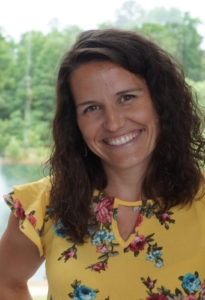Lingering in the Language of the Soul

Jaime Pollard-Smith
In a couple of weeks, I will begin a new semester with a fresh group of unsuspecting students. After reviewing the syllabus, I will open the course by suggesting a shift in perspective and proposing a revision to their role as writers. Writing to think becomes our motto, and I explain that we rarely know what we are trying to say until we have said it. I will encourage them to read as writers and write as readers, as well as push them to always show before they tell. We will work to cultivate an intuitive process of waking up and listening to our own voice, which is a tall order in our present media-crazed culture. Yet, much to their dismay, the first assignment in my freshman composition class is to examine and create a piece of personal poetry.
Joy Harjo, our U.S. Poet Laureate, once defined poetry as soul language or soul talk. Poetry is often considered “high-brow” or reserved for an exclusive club, yet Harjo’s perspective appeals to the universal humanizing role it plays. It appears in our songs and oral traditions; we hear it in our laughter and through our tears. Expanding our definition of poetry can liberate us to explore our inner selves. Robert Frost solidifies this noble endeavor by explaining that “poetry is when an emotion has found its thought and the thought has found words.”
When we truly read as writers and write as readers, we learn to listen in a specific way. We can tap into the feelings and hear the whisper behind the story. As Dorothy Allison explains, don’t tell me the grass is green; tell me how the green grass makes you feel. There are emotions attached to places, events, smells, sights, sounds, everything, and a poetic lens reminds us to pause and pay attention.
Learning to incorporate poetry into our prose can be one pathway to allowing our soul to speak through our written word. Poetry need not contain rhyme or rigid patterns, but it can come in a concentrated, more fluid form infusing our storytelling with the feelings we hope to convey. This process nudges us in the direction of the ultimate embodiment of show, not tell.
A new decade offers us the perfect chance to reflect upon our own creative process. Can we provide more space for playful, poetic, non-structured exploration in our writing? Is it possible to deepen our prose by tuning our ear to poetry? When we create spaces for “soul talk” we foster authentic kinships with our readers and tap into feelings lingering beneath the surface of our words.

